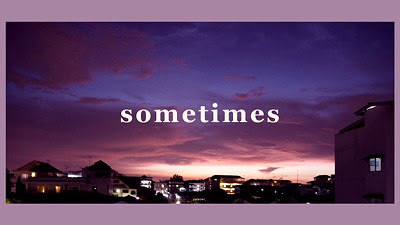"All Earthly Empires Die"
by Bill Bonner
"'Amor fati' was Nietzsche’s famous expression. It is a Latin phrase with connections to the Stoic writings of Epictetus and Marcus Aurelius. Literally translated, it means “love of fate.” It is a white shoe yearning for mud. It is a turkey looking forward to Thanksgiving. Or an investor stoically preparing for a bear market.
We use the term to describe the grace and courage you need to meet a complex, unknowable, and uncontrollable future. You don’t know whether the Earth is warming or cooling… whether it is good or bad… or whether you can do anything about it. You don’t know who’s doing “equal work.” You don’t know what equality is… how to measure it… or what to do about it. You don’t know who the bad guy is. It may even be you. It recognizes that we are all God’s fools, living in a world of ignorance, headed towards we don’t know where. Using our brains, we can make progress in our physical, material world. Technical thinking yields pyramids and Eiffel Towers.
Ignorance Everywhere: But there is another part of life, which has a mind of its own. It does not bend readily to our desires or yield to our intelligence. It is the part of life whose purposes are unknown. The first and most important Commandment, according to Jesus, was not to fight it, but to love it.
But ignorance can be a charm. You just have to take it seriously. And appreciate it. Recognizing your own ignorance will inform your newfound modesty. You will be aware of it. And fiercely proud. Nobody will be humbler than you are! And since you are so chummy with ignorance, you will see it everywhere – in every headline, every public announcement, every speech on the floor of the Senate… and every crackpot comment from every dummy voter in the empire.
In private affairs, you reduce uncertainty by getting as close to the subject as possible. That is, you avoid secondhand “news” and try to find out for yourself. The more you know about a company, for example, the more confident you can be about investing in it. That’s why the insiders always have the inside track, an advantage that is increased by the Securities and Exchange Commission’s phony “level playing field” propaganda. In public affairs – policy discussions, economics, politics – as you get closer, you become less cocksure. That is, the more you know, the more you know you don’t know.
In an interesting university study, people were asked to pick out Ukraine on a map… and whether they approved of military intervention in that country. Curiously, the further off they were on the geography (the average guess was 1,800 miles off), the more they favored forceful intervention. In public affairs, ignorance and confidence vary inversely.
Moral Certainty: When we first moved to Baltimore in the 1980s, we noticed this phenomenon in another context. Baltimore was a disaster. Crime, drugs, poverty, venereal disease, broken homes, unwed mothers, corruption – name a social problem; Baltimore had it. And while its leaders had been noticeably unable to solve any of these problems right in their own back yard, the city’s politically correct politicians were loud and clear on one issue: apartheid had to end… in South Africa. Had they ever visited South Africa? Could they find it on a map? Probably not. But they were sure they knew how to make it a better place.
“Moral certainty is always a sign of cultural inferiority,” wrote Baltimore’s own H.L. Mencken. “The more uncivilized the man, the surer he is that he knows precisely what is right and what is wrong. All human progress, even in morals, has been the work of men who have doubted the current moral values, not of men who have whooped them up and tried to enforce them. The truly civilized man is always skeptical and tolerant, in this field as in all others. His culture is based on ‘I am not too sure.’”
“I am not too sure,” would eliminate many of the world’s myth-driven, self-inflicted ills – pointless wars, dumb arguments, pogroms, persecutions, and lynchings. And reckless spending of other people’s money.
Imagine a wise Hitler entertaining the idea of building Auschwitz as a “final solution” to the “Jewish problem.” “Hmmm… I’m not too sure that would solve it… In fact, I’m not too sure there is a problem!”
Imagine Simon de Montfort readying to attack the town of Albi to exterminate the “heretics.” When told that half the people in the town were good Catholics, de Montfort replied: “Kill them all. God will recognize His own.” Suppose he had thought twice… “Hmmm… Maybe this is not such a good idea… Maybe killing people is not what Christianity is all about… Maybe the heretics aren’t so bad… Maybe I’ll take the afternoon off.”
Unwarranted Confidence: The barroom blowhard… so sure he is right about everything… is generally the dumbest guy in the place. And the most dangerous. He’s the one who will stir up a mob… and get himself elected president. The whole system of modern public policy is built on false knowledge and unwarranted confidence. The elite claims to know what is best for you. That is how every politician can claim his proposals would “benefit the American people.” But the only program that would benefit the American people would be to let them decide for themselves what would benefit them. Give them back their money. Stop bossing them around. End the wars. Stop the empire. But who would suggest such a thing?
Rather than seeing itself as one of many nations that must get along with each other, its elites begin to see that they have a special role to play. They become the one, “indispensable” nation, as former Secretary of State Madeleine Albright put it. They are the world’s only hope in combatting evil, which they do, as then Secretary of State Mike Pompeo elaborated, with “the righteous knowledge that our cause is just, special, and built upon America’s core principles.”
Thus endowed with a special mission and special powers, and subject to the special rules of the only nation with a trillion-dollar-per-year military/empire budget, the elite develop, in Fettweis’s judgment, a fatal combination of unrestrained hubris, unrealistic paranoia, and unrepentant ignorance. They see danger everywhere, without undertaking any serious study (they assume knowledge comes automatically with raw power). And they think they have not only the right, but the means, to do something about it, even if the danger is largely fantasy.
Damned to Hell: But people always come to think what they need to think when they need to think it. “All earthly empires die,” wrote St. Augustine in 413, a few years before the Vandals destroyed his city and finally brought down the Roman Empire in the West.
The elite contribute, by taking up the myths that help it die. Certainty and ignorance vary proportionally, both on the individual and on a national level. The surer a nation is of its myths… its exceptionalism… its manifest destiny… its policies… and its position at the right hand of God… the more it is damned to Hell."
○






















